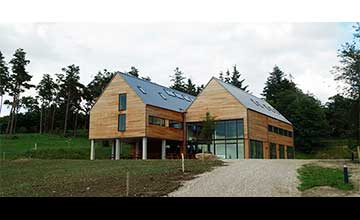Epidemiology and Biostatistics are included in the training of future doctors, chiropractors and health professionals. We contribute to the following educations:
Bachelor of Science in Medicine
- Modul B1 (a): Information competencies - Study Start
- Modul B1 (b): Cells and Tissue
- Modul B3 (a): Narrative Medicine
- Modul B4 (a): Scientific Method: Knowledge and Values I
- Modul B10 (a): Introduction course in Research Methodology
- Modul B12 (b): From "well to ill"
Bachelor of Science in Public Health
- Population Health and Demography
- Prevention of cardiovascular diseases
Bachelor in Logopaedics
- Science Theory
Medicine (Master of Science)
- Modul K14: Scientific Methods and Evidence-Based Medicine
- Modul K14: Evidens-Based medicine
- Modul K14: The Elderly Patient
Master of Science in Health Science
- Modul K2: From Molecule to Human Being - Molecular Biology and Genetics
- Modul K3: Epidemiology and Statistics
Master of Science in Public Health
- Public Health in the 21st Century: Challenges and Perspectives
- The State of Global Health
Computational Biomedicine
- Epidemiological Methods in Biomedicine
Master of Science in Pharmacy
- Evidens-based use of medicaments and Biostatistics
The Research Education in Health Sciences is run by the PhD School. The three-year course can be applied for by graduates.
PhD Cources
- Advanced usage of R
- Analysis of genetic association data
- Analysis of microarray gene expression data
- Analysis of twin data in health research
- Biostatistics I
- Biostatistics II
- Biostatistical Methods in Health Science
- Design and analysis of epigenome-wide association studies EWAS
- Introduction to Health Research
- Introduction to R
- Introduction to STATA
- Survival analysis in medical research
- Pregraduate Researcher Study
- PhD Summer School (seminar)
Research training for doctors doing specialist training
- Research training - Ground level 2



